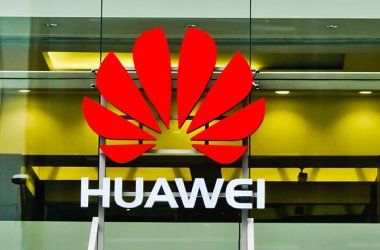 Guo Ruiqiang says he still feels sick more than a year after he suffered chemical poisoning while working on an iPhone production line.
Guo Ruiqiang says he still feels sick more than a year after he suffered chemical poisoning while working on an iPhone production line.
“My legs are always in pain and swelling,” he said by phone yesterday. “I worry my condition will get worse.”
Guo was one of 137 workers U.S. tech giant Apple said was exposed to n-hexane, a chemical cleaning agent that was used at one of its supplier’s factories in Suzhou, China. The case was addressed in Apple’s most recent progress report on its suppliers, with the company saying that “all affected workers have been treated successfully.”
But that statement contradicts with the accounts of two factory workers, who say they still need medical treatment. In interviews, they said they are being told by the supplier they must quit their jobs in order to receive the compensation for the treatment.
“I’m not satisfied at all with how things have been handled,” said Jia Jing Chuan, another worker at the facility who was exposed to the chemical poisoning. “We hope Apple will move things forward and do something about this.”
The Suzhou factory is operated by Taiwanese company Wintek, a producer of touchscreens. Apple said it had learned about the chemical poisoning in 2010 and subsequently required Wintek to stop using the n-hexane and make changes to its ventilation system.
In its latest progress report, Apple said of the exposed workers “we continue to monitor their medical reports until full recuperation.” The report added, “A majority of the 137 workers have returned to employment at the same factory.”
But both Guo and Jia, the two workers at the factory, say their symptoms are returning and have been asking Wintek to provide further medical treatment. So far, the supplier has given them no clear response.
“The company says if you feel like the symptoms are returning it’s because of your own personal reasons,” Jia said. “They said it’s because you have been drinking, or smoking.”
Jia says he neither drinks or smokes.
The employees say Wintek has offered them compensation, but at the cost of leaving their jobs and signing an agreement that says they will no longer have ties to the company.
“Most of the exposed workers have already left and only a small number remain,” Guo said. “We are worried that if we leave the company, our condition will get worse… we don’t dare sign the agreement.”
Wintek said that the company is following proper procedures for treating workers for industry-related injuries. According to Chinese laws, the workers must complete their contract or leave the job in order to receive certain levels of compensation, said company spokesman Jay Huang.
The company has handled workers exposed to n-hexane on a case-by-case basis, Huang added. Workers exposed to the chemical, but later diagnosed to be fully recovered, signed an agreement indicating this. The company used “objective measurements” in its examinations. Workers who had fully recovered would not have reoccuring symptoms.
Apple did not respond to a request for comment.
Chinese environmentalist Ma Jun, the head of the Beijing-based Institute of Public and Environmental Affairs (IPE), has been following the situation. He said the amount of compensation depends on the worker, but could vary between US$10,000 to $13,000.
“But the workers concern is that the hospital treatment is very high in cost. Some of them feel they have the symptoms and that their condition is deteriorating,” he said. “Some of them are asking for a re-examination, for a new physical, to try and clarify their condition.”
Last month, IPE and other environmental groups released a report criticising Apple for not being transparent enough about its suppliers. Ma called Apple’s newest progress report a “positive step forward” noting that the company had acknowledged the problems at the Wintek factory.
But still, the statements Apple has made about the progress at the facility do not match up with the accounts of the workers Ma has talked to.
“I think Apple should openly review all of these problems and try to resolve all the potential risks,” he said.





